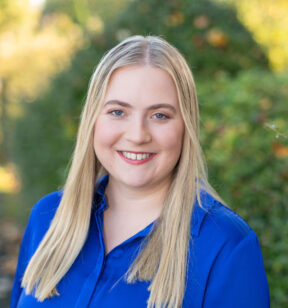What is included in the matrimonial pot and what remains a non-matrimonial asset?
When a couple decide to separate or divorce, dividing up the assets can be complex, particularly where there is pre-marital property, inheritances and gifts.
Generally, shared assets go into the matrimonial pot to be shared between both parties.
Matrimonial assets which are subject to the 50/50 sharing rule include:
- Assets acquired during the marriage
- Assets and property that reflect the couple’s joint efforts or shared life
Non-matrimonial assets not included in the 50/50 sharing rule include:
- Assets owned before the marriage
- Inheritances
- Gifts received by one party
Non-matrimonial assets can become matrimonial assets when:
- The asset is used by both parties, such as a holiday home
- The asset has been placed in joint names
- The asset is treated as part of the family’s shared wealth
However, owing to the recent Standish vs Standish case and subsequent appeals, the subject of ownership and the name on the title deeds of assets has recently been redefined by the UK Supreme Court, providing much needed clarity.
July 2025 – Standish vs Standish
This case involved Clive Standish, a former chief financial officer of UBS and his second wife, Anna Standish. In 2017, Clive put £78m of assets into Anna’s name. This was part of an inheritance tax planning exercise, designed to take advantage of Anna Standish’s non-domiciled status.
Most of these assets had been built up before his marriage to Anna. The plan was that after a certain amount of time had lapsed, Anna was to settle the assets into discretionary funds in Jersey for the benefit of their children.
However, while the trust deeds were drafted, the trusts were never established. Consequently, when the couple separated, all the assets were held in Anna’s name. During this time the value had grown to £80m.
As the owner of the assets was now Anna, were they now sharable and to be placed into the matrimonial pot?
The initial ruling
Initially, judge Mr Justice Moor ruled that by transferring the assets into Anna’s name, the assets were now ‘matrimonialised.’ On this basis, he awarded Anna a 40% share, recognising that the bulk of the wealth had been accrued by Clive Standish before the marriage. After factoring in other jointly owned assets, Anna ended up with an overall award of £45m, while Clive was awarded £87.6m.
Both parties appealed – Anna because she felt she was entitled to 50% of the assets and Clive because the assets had not been accrued during the marriage.
The Court of Appeal & Supreme Court ruling
The Court of Appeal took a different approach. They felt that the previous ruling placed too much emphasis on the transfer of legal ownership of the assets to Anna and insufficient consideration to the origin of the assets.
Lord Justice Moylan ruled that the source of the assets, rather than whose name they are held in, should determine how the assets are divided. As a result, Anna Standish had her award reduced from £45m to £25m, the largest reduction of a divorce award in the UK in terms of percentage (45%) and amount.
Anna then appealed to the Supreme Court, which upheld the ruling by the Court of Appeal.
The impact of this ruling
This ruling will impact wealth planning for high-net-worth individuals, their advisors and lawyers. It makes clear that whose name is on the deed or the account does not decide whether an asset is shared. What matters is how the asset was treated during the marriage.
In this regard, legal title is not everything and means that if assets are transferred to a spouse for tax reasons and not as a genuine gift, the assets remain non-matrimonial.
The Supreme Court further summarised the test for matrimonialisation as follows:
Matrimonialisation occurs where there is intention by the contributor to share non-marital property, coupled with treatment by the parties of this non-marital property as shared over time.
If you are struggling with issues arising from separation and divorce, we offer a no obligation initial consultation for a fixed fee of £100 (incl. VAT), for up to one hour. At this meeting, we can advise you on all the issues relating to your personal circumstances, allowing you to make informed decisions moving forward.
To book an appointment please call 01444 472700, email us at info@tisshawssolicitors.co.uk or complete the form below.

Book a consultation to discuss your options –
Only £150 (Incl. VAT)
We know how difficult divorce and separation can be, so we offer an initial one hour fixed fee consultation with a fully qualified lawyer, to help you make an informed decision about how to proceed.
To book, please call 01444 472700 or complete the quick contact form.
